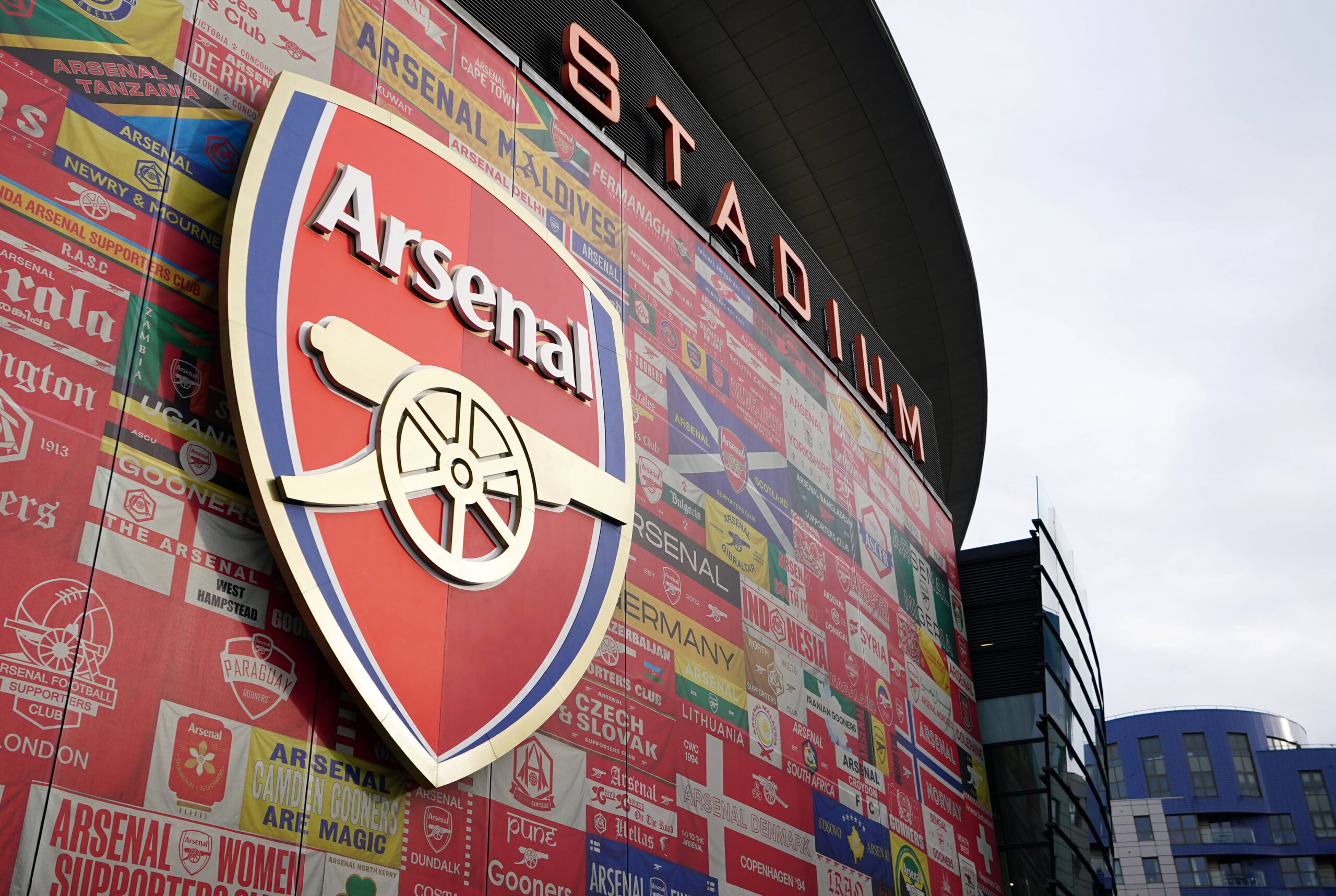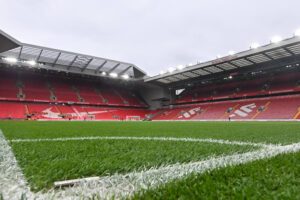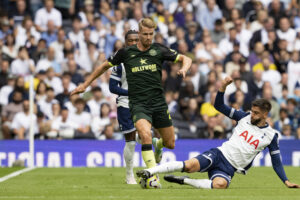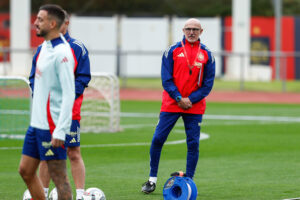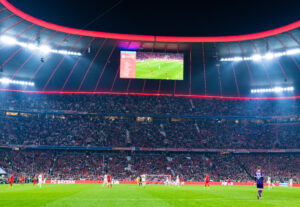At the end of 2024, Mikel Arteta will have been in charge of Arsenal for five years, or half a decade. In that time, he has transformed the club, turning them from the perennial underachievers that they had become in the last decade of Arsène Wenger’s long tenure, into genuine contenders for both the Premier League and the Champions League, as well as winning the FA Cup in the process. However, what is most remarkable about Arteta’s achievement at Arsenal is that he has managed almost all of it without a striker – a genuine goal-scorer who can score lots of goals and, crucially, score goals out of nothing.
Arsenal Striker Problems Need to Be Addressed
Arteta’s Strikerless Experiment Must End
Arteta and Arsenal last had a striker worthy of the name at the end of 2021, when Pierre-Emerick Aubameyang was late for a team meeting or even a match (and consequently was utterly disrespectful of his manager and team-mates) one last time, and Arteta decided to get rid of the hugely talented but persistently wayward Gabonese. Of course, many Arsenal fans would argue that the Gunners last had a proper striker in the summer of 2020, when Aubameyang fired Arsenal to an unexpected cup win, promptly signed a new and lucrative long-term deal, and then seemed to stop working, and crucially, scoring for the club.
Whatever the precise length of time that Arsenal have been without a striker, it has been a long time. For the second half of the 2021-22 season, the Gunners limped along with Alexandre Lacazette, who was neither a natural nor a prolific goal-scorer. Then, when Lacazette followed Aubameyang out of the Emirates in the summer of 2022, Arteta responded not by buying a traditional number nine but with the purchases of Gabriel Jesus and Kai Havertz, a converted winger and converted midfielder, in successive summers.
Read More: Arsenal Could Capitalize On Rivals’ Fair Play Woes To Sign Douglas Luiz Alternative
In his first three months at the club in the autumn of 2022, Jesus was a revelation, lifting the entire standard of the team. Although he did not score many goals, he was responsible for many assists, especially for the young and lightning-quick wingers on either side of him, Bukayo Saka and Gabriel Martinelli. Then, of course, Jesus went to the winter World Cup in Qatar with Brazil, got injured and has never been the same player for Arsenal since. Now, he generally neither scores nor creates assists.
Unfortunately, Havertz has been even worse as a striker or, more charitably, a “false nine” than Jesus. He never enjoyed the purple patch that Jesus did at the start of his Arsenal career. Instead, he has largely struggled to adapt to playing up front, which is unsurprising given that he is, by instinct and experience, an attacking midfielder and not a striker. He may have scored some vital goals for Arsenal earlier this year, but he missed at least two good chances against Aston Villa when he was through on goal and against Bayern Munich in the second leg of the Champions League quarterfinal.
Of course, Arsenal also have their third striker, Eddie Nketiah. At the start of 2023, when Jesus was injured, Nketiah briefly looked as if he might fill the striker-shaped hole in the Arsenal team, especially when he scored a superb late winner against Manchester United. However, he has barely figured or scored since. Some Arsenal fans have dubbed him “Eddie Notyetiah.” It seems he will never be the striker that Arsenal so desperately need.
Strikers Are Strikingly Absent in Modern Football
Of course, a large part of the problem for Arteta and Arsenal is that there are roughly half as many strikers in football now as there were throughout most of the history of football, when playing with two strikers up front was the norm and not the exception, as it is today. We are now in the era of the single striker, a lone player up front who is supposed to do the work that two players used to do. So perhaps it is no wonder that it is so hard to find one.
Nevertheless, it is not impossible, as proven by Arsenal’s two direct rivals in the Premier League title race, Manchester City and Liverpool. When Sergio Aguero, a consummate striker, began to decline a few seasons ago, Pep Guardiola briefly experimented with playing without a proper striker. Since then, however, he has bought not only the fearsome Erling Haaland but probably the best striking understudy in world football, namely Julian Alvarez, who was so instrumental in Argentina’s World Cup triumph and who would be a starter in almost every team in Europe other than the one with Haaland in it. Similarly, Liverpool have not only Mo Salah, who is nominally a winger or wide attacker but still scores the volume of goals associated with a striker, but his likely long-term replacement, Diogo Jota, and the erratic but talented Darwin Nunez.
Read More: Arsenal Target Will Need ‘Unbelievable’ £100 Million Bid
In every other respect – goalkeeper, defence and midfield – Arteta has created an Arsenal team to challenge both Manchester City and Liverpool, but not in attack and specifically not in central attack. In comparison with Manchester City and Liverpool’s striking resources, the Gunners are taking on near-nuclear arsenals with the footballing equivalent of 19th-century cannons.
Which Striker Could Arsenal Buy?
The real or even striking irony of the situation is that Arsenal do not need a great striker, à la Haaland or Salah, or even a really good one, such as Alvarez or Jota. They need a good one, a proven goal-scorer who can get the regulation 15 to 20 goals a season expected of a good striker, not the 40+ or 50+ that Haaland and Salah are capable of.
The difference a good striker would make to the current Arsenal side would be considerable, if not transformative. Yes, Arteta’s side have scored more goals than Manchester City and Liverpool in the Premier League this season, which is a testament to the collective strength and scoring ability. However, when it comes to the period we are in now, the crunch part of the season when goals are relatively rare (especially in comparison with the rest of the season), they have been found wanting, as demonstrated by their inability to score even a single goal in the two matches against Villa and Bayern.
Read More: Manchester City, Liverpool and Arsenal Are Chasing the Premier League Title, as Well as History
Most Arsenal fans could name three good strikers in the Premier League and another three in the other four major European leagues whom the club could reasonably sign without considering elite-level strikers such as Victor Osimhen. So, in time-honoured tradition, Arteta and Arsenal as a whole must prepare a list of strikers that they want, ranked in order of excellence (with Osimhen at the top), and work down it until they can finally acquire the striker they so desperately need.
It must be re-emphasised that Mikel Arteta has done a fine job at Arsenal. However, his inability over a number of seasons and several transfer windows to sign the striker his team so obviously needs has been his Achilles heel as a manager. He must rectify that situation this summer, or the positive work that he has done at Arsenal risks coming to nothing.


